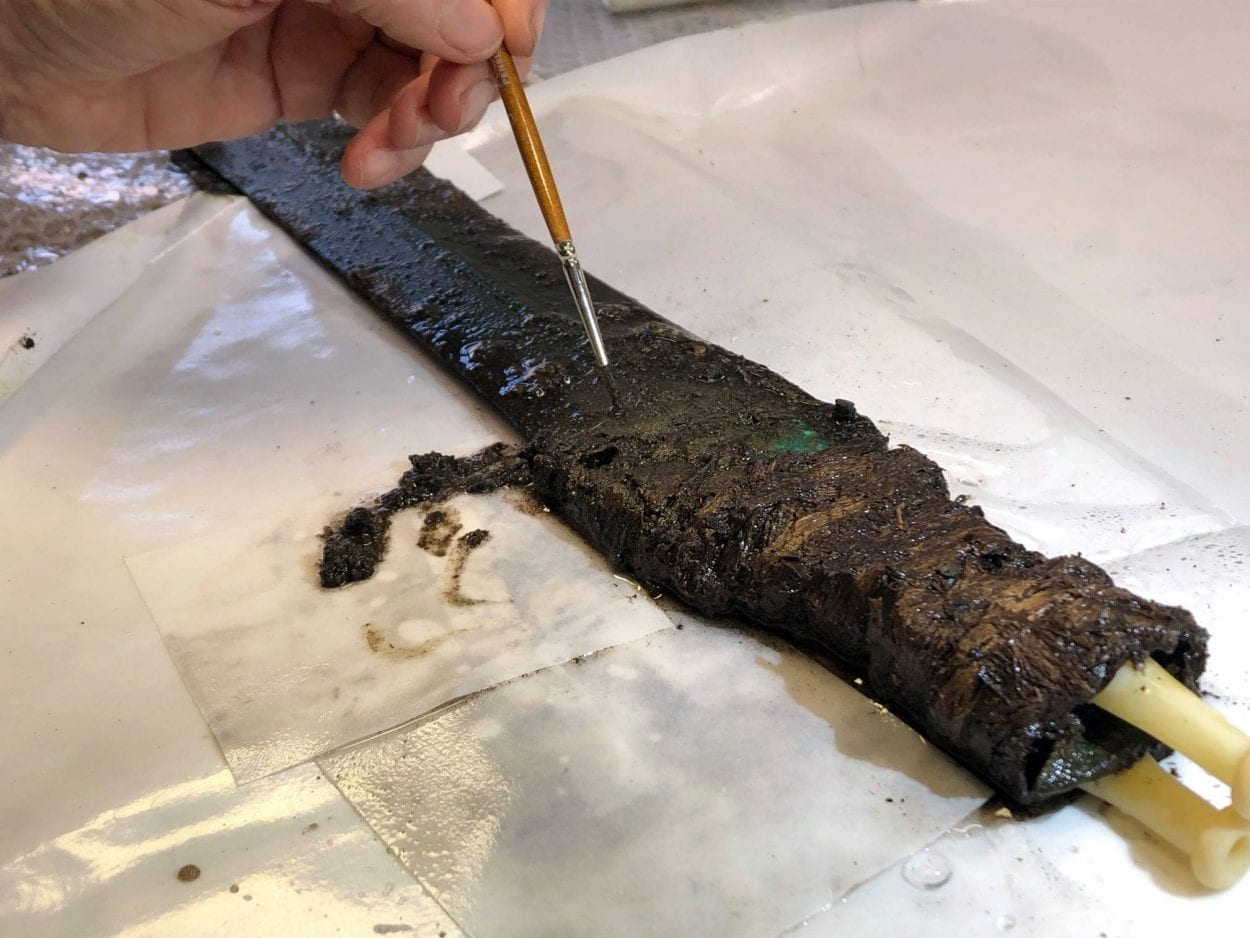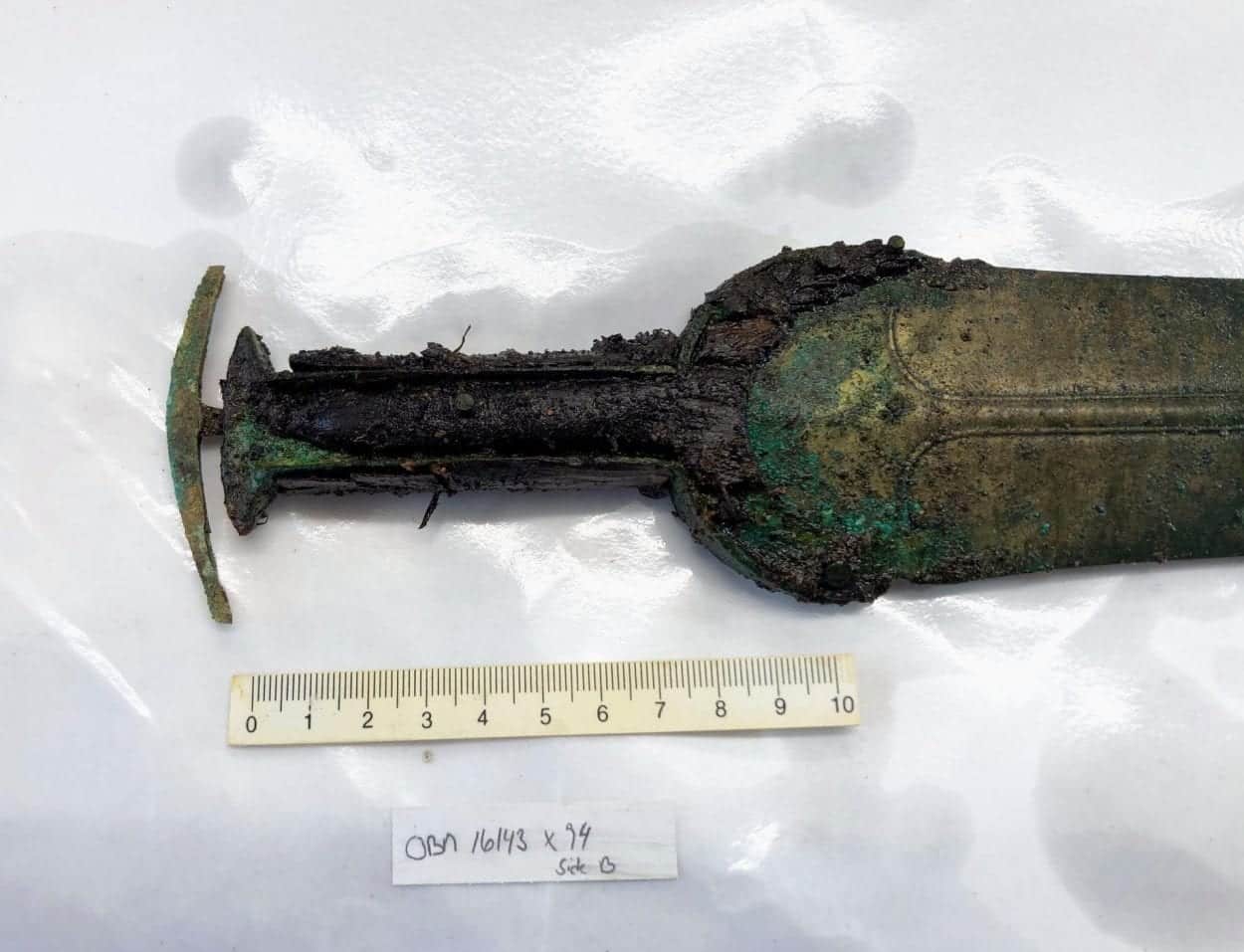Archaeologists excavating at the village of Håre on the island of Funen in Denmark, have discovered an ornate Bronze Age sword dating from around 3000 years ago.
Researchers from the Odense City Museums made the discovery during a year-long rescue excavation of an ancient settlement on the route of a planned gas pipeline.
The sword dates from the Bronze Age Phase IV and was placed as a ceremonial offering in a pit wrapped in Bast fibres. During this period, valuable metals were imported primarily from Central Europe and were often crafted locally.
Chief Inspector Jesper Hansen described the sword as “completely unique”, with the 1.3kg bronze blade being relatively intact, with a hilt made from wood, horn, and tack winding.

Archaeologists carefully lifted the blade to be transported to the museum’s department for further preservation and conservation.
The hilt assembly and winding have been dismantled for individual study, and samples of the various materials (plant fibres, horn and wood) will be submitted for carbon 14 dating to accurately confirm the age of the sword.
Further studies will be conducted on the swords inter-metallic compounds, and their mixtures to determine the specific metal alloy from which the sword is made. On completion of the conservation work, the sword will be reassembled and exhibited at the Møntergården cultural history museum in Odense.
Header Image Credit : Odense City Museums





